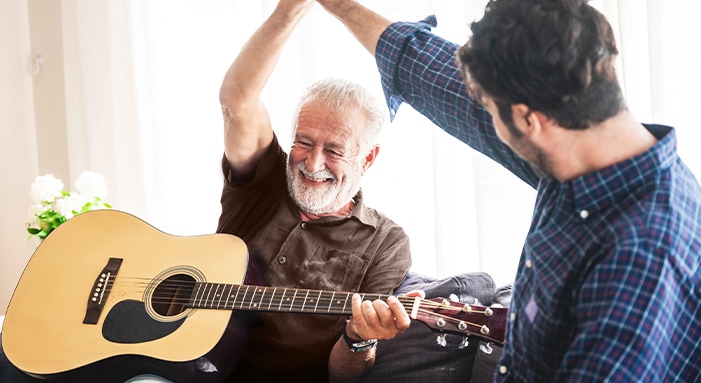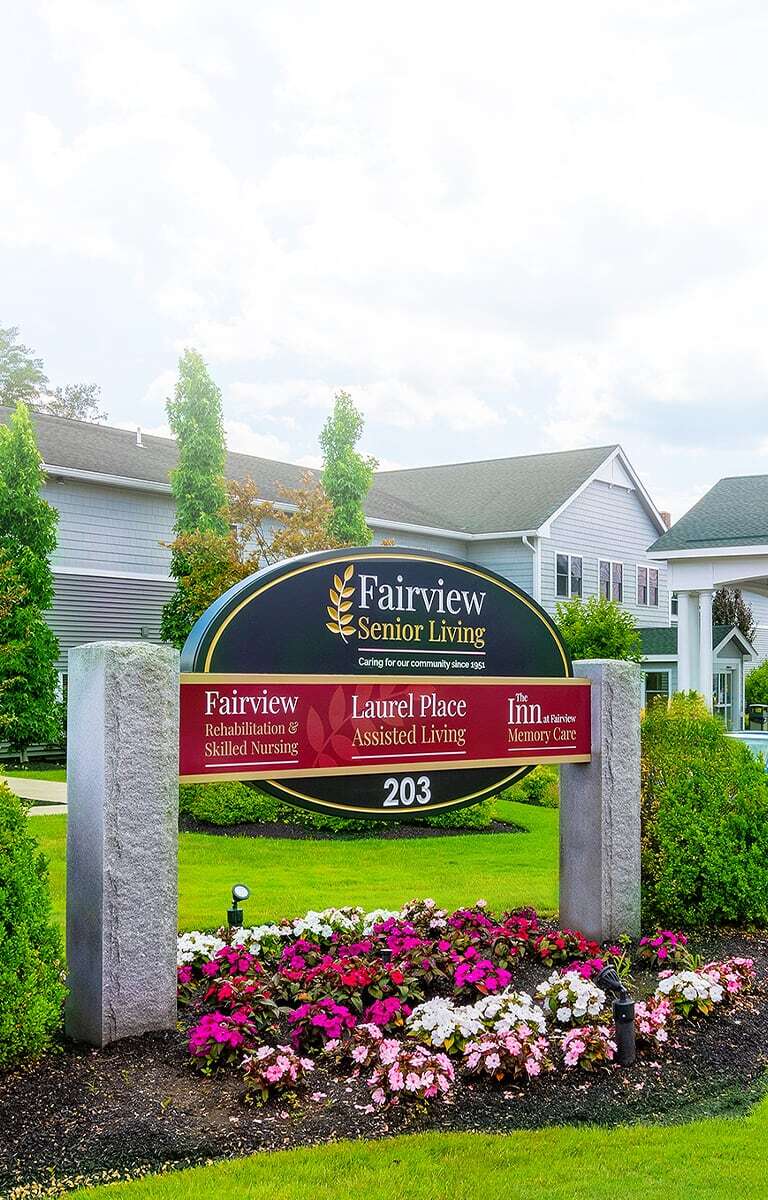We’ve all heard the saying “music is good for the soul.” And, according to scientific evidence, music is good for health as well. Music therapy is an established, credentialed health profession in which music is used in therapeutic relationships to address physical, emotional, cognitive, and social needs of individuals. There is a wealth of research on the benefits of music therapy that supports its effectiveness in numerous ways, including it’s proven ability to help:
- Promote wellness
- Manage stress
- Alleviate pain
- Enhance the expression of feelings
- Enhance memory
- Improve communication
- Promote physical rehabilitation
A credentialed music therapistis a trained health professional thatmust have a bachelor’s degree or higher in music therapy from one of the American Music Therapy Association’s 72 approved colleges and universities, and must complete 1200 hours of clinical training.They must also becredentialed through the Certification Board for Music Therapists, which protects the public by ensuring competent practice and requires continuing education. Some states require additional licensure for board-certified music therapists.A degree in music therapy requires study in psychology and medicine, in addition to music. It is important to point out the difference between a board-certified music therapist and a musical entertainer. Music therapists are not to be confused with art therapists, volunteer musicians, or other therapists who happen to use music in their sessions.
Some music therapists work with seniors, those with chronic or acute pain, people with physical disabilities or mental illnesses, and individuals with Alzheimer’s disease and other aging-related conditions. Music therapy methods include, but are not limited to, songwriting to improve self-expression and attention, use of familiar music for environmental orientation, social music experiences for connectedness to others, and instrument playing for creativity and increasing strength.
There is a growing body of evidence on the effectiveness of music therapy in a clinical setting, including with the elderly. Scientific research indicates that singing in a choir or participating in group singing activities can improve health and well-being in older adults, lead to positive physiological changes, and improve social relationships (Clift, 2012). Neuroscientists explain that the positive health effects from music can trigger the brain to release dopamine, the feel-good neurotransmitter (Altenmueller & Schlaug, 2012).
In one metareview (a review of numerous research studies) published in The International Journal of Geriatric Psychology, researchers found evidence that music interventions and music therapy improved food intake and reduced behavioral and psychological symptoms of dementia, such as agitation, aggression, wandering, restlessness, irritability, and social and emotional difficulties.
Seniors Making Connections Through Music, a research project through Benjamin Rose Institute on Aging’s Center for Research and Education, is currently exploring group music programs for those living with dementia and the positive impact this can have on their family caregivers. If you choose to include music therapy in your loved one’s care plan, you can learn new ways to address your own wellness needs while witnessing the safe, professional care your loved one is receiving.
Nadine Robinson, MT-BC, the new Music Therapist at Fairview Senior Living explains, “since each person’s clinical needs, skills, and interests are different, their care should reflect their individuality as well. Some of these clinical areas of need can include, but are not limited to, cognitive functions, emotional awareness, socialization, and communication.” General goal areas of her music therapy program include:
Social skills
- Receptive language skills (active listening)
- Expressive language skills (verbal contribution to conversations)
- Increased involvement in social experiences
Emotional skills
- Decreased anxiety, depression, and stress
- Addressing and processing grief
- Increased self-esteem
Motor skills
- Fine motor skills (movements using small muscles in hands and wrists)
- Gross motor skills (movements using larger muscles such as arms and legs)
- Coordination
Cognitive skills
- Short- and long-term memory
- Sustained attention
- Orientation to the present moment
“We are very excited to offer this program at Fairview Senior Living, and to see firsthand the positive impact music therapy has on our residents and their loved ones,” says CEO Stephan Pazulski. “Our Music Therapist Nadine Robinson trained at the prestigious Berklee College of Music, and her experience working in the field of geriatrics combined with her musical talent makes her a great asset to our communities.”
If you would like to learn more about the power of music therapy, this list of resources from the American Music Therapy Association® may help. Here you can find numerous articles and mentions of music therapy in the media detailing what it really is, the work qualified music therapists have done, and how professional music therapy services have been beneficial in addressing a variety of healthcare needs.
References:
The American Music Therapy Association®
Altenmueller, E., & Schlaug (2012). Music, brain, and health: Exploring biological foundations of music’s health effects. Music, health and well-being. (pp12-24). New York: Oxford University Press.
Clift, S. (2012). Singing, well-being, and health. Music, health and well-being (pp113-124). New York: Oxford University Press.
Hulme, C., Wright, J., Crocker, T., Oluboyede, Y., & House, A. (2010). Non-pharmacological approaches for dementia that informal carers might try or access: A systematic review. International Journal of Geriatric Psychology, 25, 756-763.




